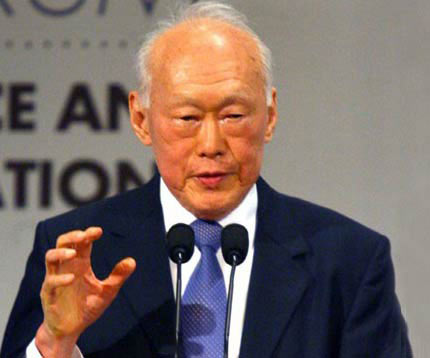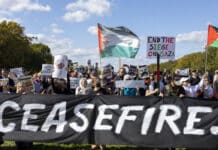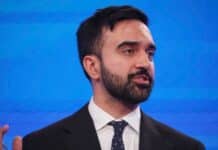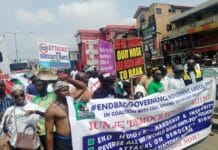Apologist for neo-liberalism and autocracy
Ravichandren, CWI Malaysia with additional reporting by Socialist Action in Hong Kong
Singapore’s former patriarch Lee Kuan Yew died at the age of 91 on 23 March. World leaders and most of the pro-market media applauded him as a ‘great leader’ who elevated Singapore to a modern state on a par with the most developed countries. They admire Lee basically for his three decades (1959-1990) of having absolute power that he used to assist local and international capitalists to reap economic profits. But this was achieved by widespread repression as well as an anti-working class and anti-socialist agenda.
Lee’s Singapore is held up as a political model for a city-state by right-wing Hong Kong nativist groups and at the same time it is used as a model for a modern authoritarian China by the leaders of the Chinese dictatorship (CCP). How is it that two groups that claim to be bitter enemies both share a common admiration for the same authoritarian model?
Although considered modern and developed, Singapore is among the countries with the worst records of human-rights violations. Lee always identified with autocratic rule, and had some common characters with regional leaders such as Suharto in Indonesia and Mahathir in Malaysia. He cracked down against government critics and dissidents – jailing many without trial. Lee never allowed an independent media, and suppressed freedom of speech and freedom of assembly. According to Reporters Without Borders Singapore’s press freedom ranks 153 out of 180 countries in the world, just below Putin’s Russia. Opposition leaders who were outspoken against the government were bankrupted by contesting in courts controlled by the government. Nepotism and cronyism are also evident in the Singapore regime. In addition to his son, Lee Hsieng Loong being the current Prime Minister of Singapore, his other children and immediate family members occupy important government or business positions in the country. Lee’s daughter-in-law, Ho Ching, is the CEO of Temasek Holdings, Singapore’s giant investment company which allows the ruling party to control large parts of the economy.
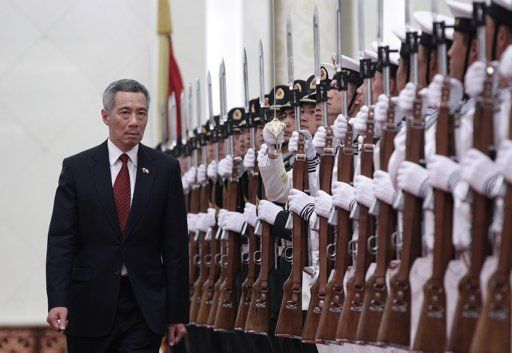
Trade unions and left destroyed
At the beginning of his political career, Lee Kuan Yew used the left and the trade unions as a platform to increase his popularity. Chin Peng, the leader of the Communist Party of Malaya (CPM), in his autobiography ‘My Side of History’, said about Lee’s astounding electoral victory in May, 1959: “I can certainly say that most of the island’s workers sympathised with the left-wing trade unions, and members of these unions well appreciated they were under the control of the CPM. Our supporters, sympathisers and fellow travellers went on to provide Lee’s grassroots electoral support. Without them he would never have achieved his stunning 43-seat victory in the 51 constituencies up for decision at the May 30 polls”.
The CPM, which was trapped in Maoist and Stalinist opportunist ideas, adhered to the idea of a popular front (politically tail ending the liberal or ‘national’ capitalist leaders) and the ‘two stages’ theory, i.e. that first it was necessary to struggle for democratic rights, and only after accomplishing this was it possible to fight for socialism. Their mistaken approach was utilised by Lee Kuan Yew in the 1960s to take power and promote the agenda of capitalism in Singapore. As with Jiang Jieshi (Chiang Kai-shek) in China in the 1920s, Lee went on to crush his former left supporters, banning trade unions and the Communist Party.
After this, the labour movement in Singapore was incorporated under the state’s control. The National Trades Union Congress (NTUC) was founded in 1961 to oppose the left-wing SATU. Since 1980, the main NTUC leader has always been a member of government. At present, the NTUC is no more than a puppet of the state and the steadily declining union memberships since the late 1970s illustrates its complete ineffectiveness and its bias against workers. Also, cheap migrant workers from Malaysia, Thailand, Indonesia, Sri Lanka, Philippines and other countries, make up more than 30 percent of the total workforce and face a variety of discrimination.
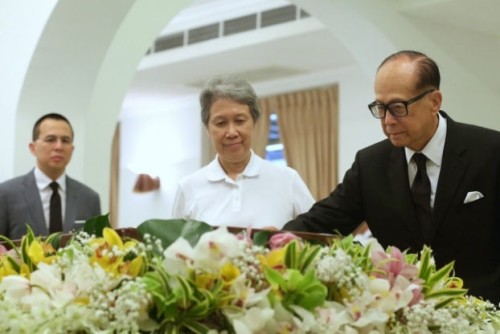
State capitalism
Lee Kuan Yew described himself as a socialist in the 1950s and proclaimed that the victory of the revolution in China was a great achievement for the country and its people. He said at that time, “I have always thought that a Socialist is one who believes that state planning and control would bring about the greatest benefit to the community as a whole”. But the man who led Singapore for decades used state control and planning for opposite ends – to heighten the capitalists’ profits by suppressing workers’ rights. He established a strong paternalistic state to accumulate capital and to achieve unnaturally rapid economic development.
In the early 1960s, the Ministry of Finance took stakes in a variety of local companies in sectors like manufacturing and shipbuilding. Then in 1974 the state established Temasek Holdings to incorporate and manage these companies. Temasek has stakes in more than 60 companies including SingTel (telecom) Singapore Airlines and Singapore Power.
Singapore’s strategic location – like Hong Kong it is surrounded by much bigger and poorer neighbours – has given the country an economic importance in Southeast Asia. While its lack of physical resources and a small domestic market have been used by the government to adopt a pro-foreign investment, export-oriented economic policy combined with state-directed investments. It makes the economy extremely vulnerable to regional and global financial shocks, just like Hong Kong. As South China Morning Post columnist Jake van der Kamp noted, “Singapore, like Hong Kong, prospers as a parasite economy” – relying on financial flows through its banking system to the wider region. This means that Singapore cannot survive by itself, and the capitalist agenda pioneered by Lee Kuan Yew in Singapore has led to crises and conflicts when there are regional or global crises. It has also meant a variety of social problems such as the tremendous difficulty in owning a house, especially for the young generation, and a worsening wealth polarisation between the rich and poor.
An increase in seats won by the opposition parties in the last election (2011) marked the dwindling of public confidence in Lee’s People’s Action Party (PAP) and the foundations of the state he built. Many now see this as more favourable to the millionaires and capitalists. The undemocratic approach of the PAP and the social conditions that oppress the masses have been used by the opposition parties to gain support in the elections. But, without the construction of a government that champions the needs and welfare of the common people of Singapore, their social and economic problems cannot be solved. A mass party based on a socialist programme must be established to fulfil the needs and rights of the common people of Singapore as a real alternative to the capitalist model of Lee Kuan Yew and the PAP.

